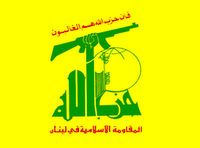
Conflicting views of the Middle East crisis
July 27, 2006
A Hezbollah point of view from Ali Fayyad.
FOR nearly two weeks, Israel has been waging a war of terror and aggression against Lebanon. Its stated justification is the capture by the Islamic Resistance (Hezbollah) of two Israeli soldiers with the aim of exchanging them for Lebanese prisoners. The war has already resulted in the killing of about 400 and wounding of more than 1000 Lebanese. Most are civilians (a third children), crushed in their homes or ripped to pieces in their cars by Israeli bombs and missiles.
In reality, the Israeli escalation is less about the two soldiers and more about its determination to disarm the Lebanese resistance. According to the US, Israel and some other Western states, this would implement UN Security Council Resolution 1559, which led to the withdrawal of Syrian troops from Lebanon last year.
Most Lebanese, however, do not regard the resistance forces of Hezbollah as militias, as referred to in the UN resolution, let alone any kind of terrorist organisation. Our resistance accomplished a major national mission by forcing Israeli troops to withdraw from most Lebanese territory in 2000 after 22 years of occupation...
The Lebanese people's support for the resistance was demonstrated by the fact that Hezbollah and its allies won more seats in the 2005 elections, following the Syrian withdrawal, than when Syrian troops were still in the country. That is why Israel is now targeting civilians.
In the context of the continued occupation, detention of prisoners and repeated Israeli attacks and incursions into Lebanese territory, the capture of the Israeli soldiers was entirely legitimate. The operation was fully in line with the Lebanese ministerial declaration, supported in parliament, that stressed the right of the resistance to liberate occupied Lebanese territory, free prisoners of war and defend Lebanon against Israeli aggression.
[...]
There is now a clear national consensus on the need to maintain the military power necessary to prevent Lebanon from being subjugated by Israel's war machine. Popular resistance is a way of redressing the huge imbalance of power [and] defending Lebanon's sovereignty...It is also dictated by an entirely local agenda, rather than reflecting any Syrian or Iranian policy.
The aggression against Lebanon, which has primarily targeted civilians and failed to achieve any tangible military objectives, is part of a continuing attempt to impose Israeli hegemony on the area and prevent the emergence of a regional system that might guarantee stability, self-determination, freedom and democracy.
Hezbollah has tried from the start of this crisis to limit the escalation by adopting a policy of limited response while avoiding civilian targets...However, Israel's systematic destruction of entire civilian areas in Beirut and elsewhere and perpetration of scores of horrific massacres prompted Hezbollah to shift to an all-out confrontation to affirm Lebanon's right[s]...just as any sovereign state would do.
Thus far, Hezbollah has had surprising military successes, while maintaining its position in the face of Israel's superior firepower, and preserved its capacity to wage a long-term war. But Hezbollah is still ready to accept a ceasefire and negotiate indirectly an exchange of prisoners to end the crisis.
This is what Israel has so far rejected, with the support of the US, for this is also a war of American hegemony over the Middle East, and the US is fully complicit in the Israeli war crimes carried out in the past two weeks. It would appear that the peaceful option will not be given a chance until Hezbollah and the forces of resistance have demonstrated their ability to confront Israel's aggression and thwart its objectives, as happened in 1993 and 1996. That is why resistance is not only a pillar of our sovereignty but also a prerequisite of stability.
Ali Fayyad is a senior member of Hezbollah's executive committee.
No comments:
Post a Comment